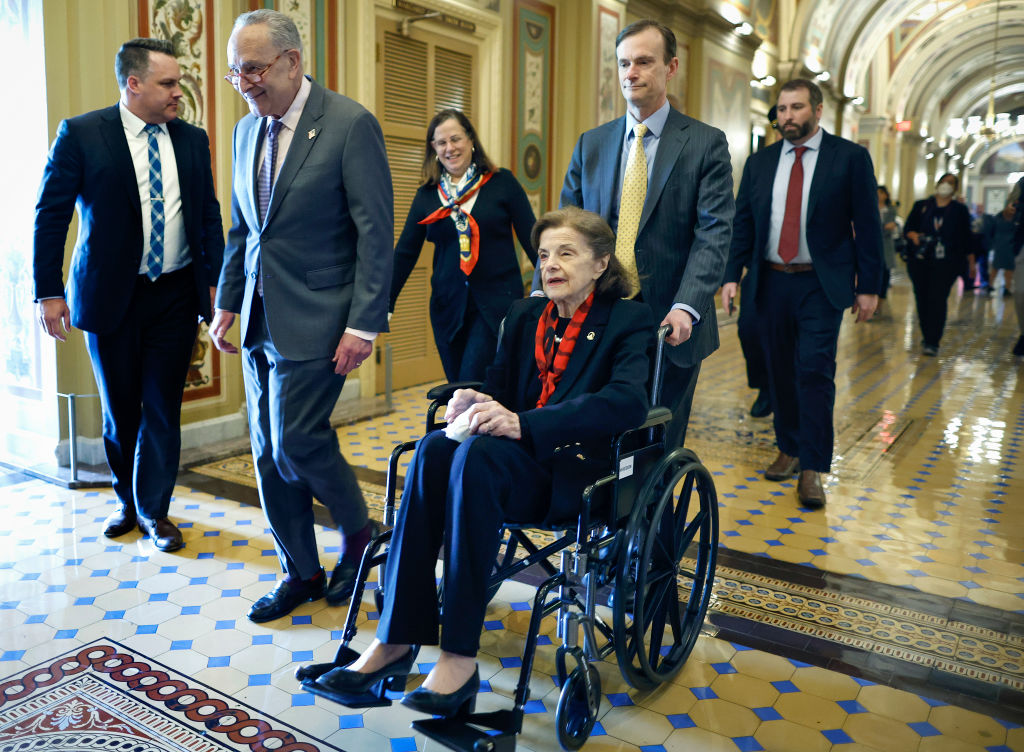Sen. Dianne Feinstein (D-Calif.) has faced calls for her resignation after she was absent from the Senate for two months.
But if you ask the senator about her time away from the chamber, she might insist she was never gone.
Salon published an article on Tuesday titled, “A Brief, Concerning Conversation With Dianne Feinstein,” which shared an interaction she had with reporters at the Capitol.
When Salon’s Jim Newell asked the California senator how she was feeling, she responded, “Oh, I’m feeling fine. I have a problem with the leg.”
After Newell asked what was wrong with Feinstein’s leg, she answered, “Well, nothing that’s anyone’s concern but mine.”
So far, the exchange is going OK.
But, Newell writes when a “fellow reporter asked her what the response from her colleagues had been like since her return, though, the conversation took an odd turn.”
“No, I haven’t been gone,” Feinstein responded.
She insisted, “You should follow the— I haven’t been gone. I’ve been working.”
Lest you think Feinstein was just trying to say she had been working remotely, the senator doubled down on her claim that she has physically been in Washington, D.C., for the past couple of months.
“No, I’ve been here. I’ve been voting,” she said, adding, “Please. You either know or don’t know.”
Feinstein, 89, was absent from the Senate for two and a half months and not in the nation’s capital after she was diagnosed with shingles. In an April statement, she referred to her timeline for a “return to Washington” and stated she had been working “from home in San Francisco.”
But as she missed dozens of votes, calls grew for her resignation. For her part, Feinstein insists she will serve out the remainder of her term, which ends in 2024.
The last few months seem to be a good example of why there should be some kind of limit for lawmakers — whether it is age limits or term limits.
There are examples of lawmakers in their 70s and 80s who seem to be perfectly capable of carrying out their job duties and do not seem to have lost a step. Term limits may not necessarily prevent someone from serving till they are 90. But everyone ages differently, so implementing age limits could certainly be tricky to figure out where the age cut-off is.
Still, when we have senators or House members who have been serving for decades and are entering their 80s, or about to enter their 90s, it seems some kind of change may be necessary if they will not retire.
Not only does it risk tarnishing once-legendary careers if their faculties become diminished and they are unable to fulfill their duties, but it deprives the younger generation of representatives in Congress who have similar life experiences and values. And that makes it less likely that the people who actually have to cast the votes are going to have a grasp on what their constituents are experiencing.
Congress was not meant to be a job where lawmakers get elected in their 40s or 50s and stay until they die. And if public servants believe they can serve for however long they want, regardless of their mental or physical state, perhaps it is time for a limit — though it seems unlikely lawmakers would vote to impose such a limit on themselves.

























 Continue with Google
Continue with Google